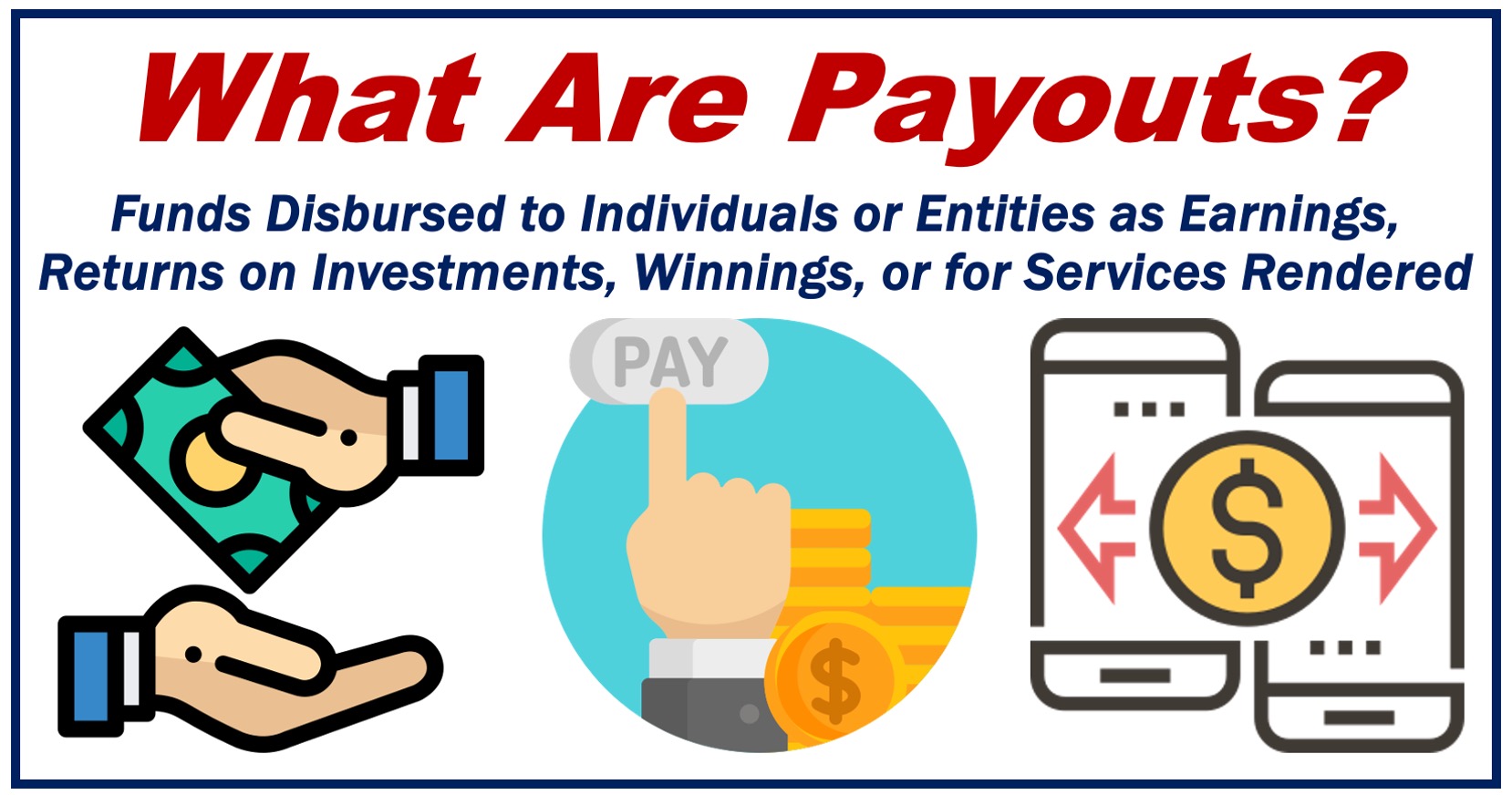The term Payouts refers to funds that are paid to an individual or entity as payment for services or winnings, as a return on investment, or both. Put simply, it is the process of transferring financial amounts owed from one party to another.
The term can often suggest that a large amount of money is involved.
According to the Cambridge Dictionary, a ‘Payout’ is:
“1. A large amount of money that is paid to someone. 2. An amount of money paid to someone.”
Types of payouts
-
Dividends
Paid by a company to its shareholders out of profits.
-
Wages and salaries
Regular payments to employees for the work they do.
-
Lottery winnings
Winners are paid out in annuities or lump sums.
-
Insurance claims
Payments made to policyholders in the event of a claim.
-
Pension disbursements
Pension funds make regular payments to retirees
-
Vendor payments
Payments made to suppliers for their products.

Payout methods
Payouts can be processed by various types of channels:
-
Direct deposit
Electronic transfer of a payment directly into a bank account.
-
Checks (British: Cheques)
Written instructions, directing a bank to transfer a certain amount from a person’s account to the person or company displayed on the check. If a check is properly filled out and endorsed, it can also be cashed at the bank, allowing the bearer to receive the amount specified directly in cash.
-
Cash
Physical currency paid directly to the recipient.
-
Wire transfer
Money transfer done electronically over a network controlled by many banks worldwide.
Factors influencing payouts
There are several factors that influence payouts, such as:
-
Payout policy
A company’s policy on dividends can determine the frequency and amount of payouts to shareholders.
-
Contractual agreements
Contractual agreements often specify the exact terms for payouts, including the methods and timing. For instance, if a supplier offers me 30-day payment terms, as a client, I am entitled to pay the invoice anytime up to thirty days following the invoice date.
-
Financial stability
Financial stability refers to the health of a business, which affects its ability to make payouts. A company facing cash flow issues may request a delay in payment from creditors by a few days or weeks.
-
Regulatory requirements
Legal or tax regulations can influence how and when payouts are made.
Payout timing
-
Immediate
Certain types of payouts, like lottery winnings or gambling payouts, can be immediate.
-
Deferred
With some investments, like retirement plans or annuities, payouts do not start until a specific date in the future.
-
Recurring
Recurring payments, such as salaries or dividends, are typically made according to a predetermined schedule. For instance, if you wish your bank to transfer a fixed amount to a particular account each month, you can establish a standing order.
Challenges with payouts
Like any financial process, payouts come with their own set of challenges, including:
-
Cash flow management
Ensuring that sufficient funds are available for payouts is crucial in maintaining trust and financial stability.
-
Tax implications
Payouts may have tax consequences for both the paying and receiving parties, affecting their overall financial planning and reporting.
-
Fraud prevention
Implementing robust and secure processes is essential to prevent unauthorized payouts and protect against fraudulent activities.
Written by Nicolas Perez Diaz, November 2, 2023.
